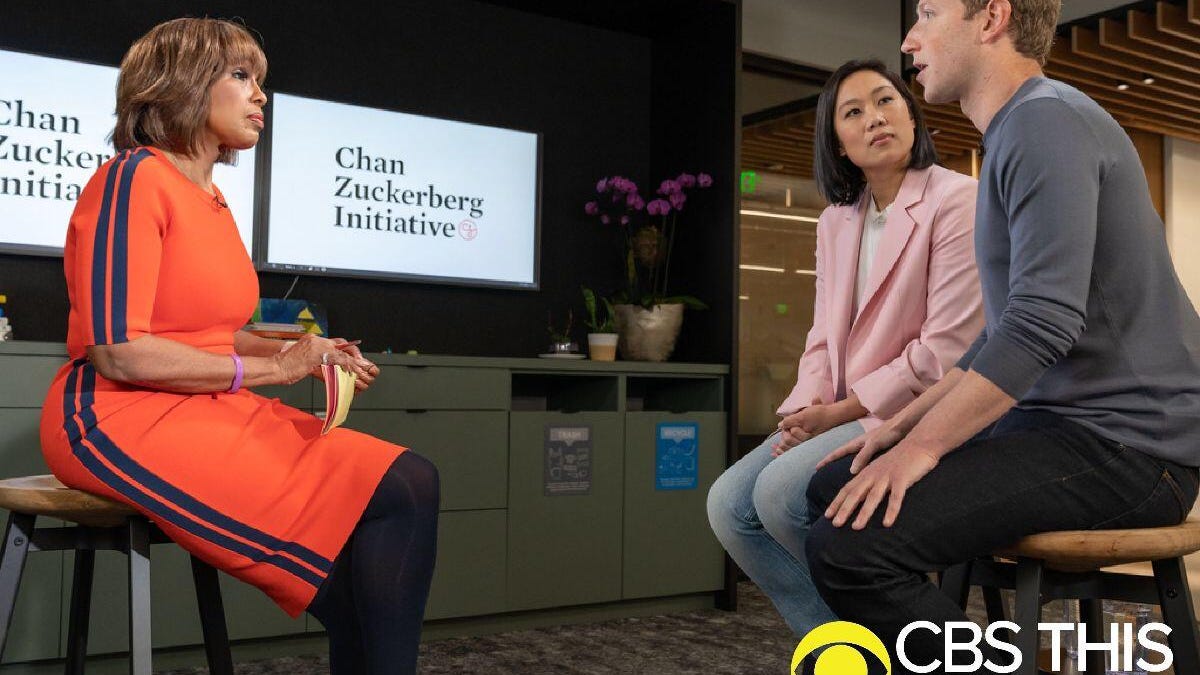Mark Zuckerberg: People should make their own judgments on political ads
Facebook's CEO again defends the social network's policy on political advertisements.

CBS This Morning co-host Gayle King (left) speaks with Mark Zuckerberg and Priscilla Chan about the Chan Zuckerberg Initiative and challenges facing Facebook.
Facebook has faced repeated criticism for its policy against fact-checking advertisements from politicians, but CEO Mark Zuckerberg is again defending the social network's decision. In an interview that aired Monday, Zuckerberg said that it's important for people to judge for themselves what politicians are saying.
"What I believe is that in a democracy, it's really important that people can see for themselves what politicians are saying, so they can make their own judgments," Zuckerberg told CBS This Morning co-host Gayle King. "And, you know, I don't think that a private company should be censoring politicians or news." (Editors' note: CNET is owned by CBS.)
Zuckerberg has been defending the social network's controversial approach to political speech as it tries to strike a balance between free speech and combating misinformation amid elections. Facebook faces mounting pressure to do more to stop misinformation, hate speech and other offensive content on the world's largest social network, which has nearly 2.5 billion users.
Criticism about the company's hands-off approach to political ads heightened in October after Facebook rejected a request by Joe Biden's presidential campaign to remove an ad by Donald Trump's reelection campaign because it contains misinformation about the former vice president. The Trump ad included a 30-second video that said Biden had promised Ukraine $1 billion if officials in that country fired the prosecutor investigating a company affiliated with Biden's son, a claim that has been been debunked by fact-checking groups and media reports.
Facebook has been considering changes to its political ads policy but its stance on the issue differs from other tech companies. Twitter has banned political ads, but its rules include exceptions for ads about hot-button issues such as immigration and climate change if they don't advocate for a candidate or legislation. Google said in November it's restricting targeting for election ads to age, gender and postal code.
Facebook has also faced allegations that it censors conservative speech, which it has repeatedly denied.
Zuckerberg, who was being interviewed alongside his wife, Priscilla Chan, also acknowledged having dinner with President Donald Trump at the White House in October. Zuckerberg said they talked about a "number of things" that were on the president's mind but didn't offer specifics, saying it was a "private discussion."
Facebook didn't immediately respond to a request for additional comment.
Originally published Dec. 2, 6:44 a.m. PT.
Updates, 7:02 a.m.: Adds more details from interview. 12:12 p.m.: Adds more background.



